The best sustainable and ethical menswear brands to add to your wardrobe
Written in collaboration with Fairtrade
We’ve all heard the saying “it’s what’s on the inside that counts.” Well, when it comes to the ingredients in our skincare, it couldn’t be more true.
And their potential is only just beginning to be unlocked.
Shea butter, coconut oil and olive oil, for example, are common ingredients listed in beauty products. They help make our locks look shiny and luscious. They are often the secret to that hydrated, healthy glow to our skin.
These ingredients are the hidden holy grails in our more natural beauty routines, revealing themselves only to the very (very) few of us who attempt to decipher ingredient lists.
But, what even those few might not realise is that more than just having the potential to make us feel good, these ingredients can also empower the women who produce them, too – when they’re bought on Fairtrade terms.
Fairtrade beauty is a relatively new, and thankfully growing, market that is helping to support small-scale producers, especially women, around the world.
As Anna Barker, head of Responsible Business at the Fairtrade Foundation, explains, this support is more important than ever:
“The pandemic combined with the increasing effect of climate change, has put pressure on low-income farmers around the world, and many fear being further marginalised by the economic downturn in months to come, so any support we can give them couldn’t come at a better time.”
How Fairtrade empowers women across natural beauty ingredients
As well as the usual Fairtrade logo, when it comes to beauty products, the logos you are looking for are the Fairtrade Mark with an arrow next to it or the Fairtrade Sourced Ingredient (FSI) logo (see box).
Fairtrade is well known for its innovative work with farming co-ops. This is when small farmers come together as a democratically organised collective. The theory is they’re stronger together – they can get access to more resources and more negotiating power by supporting each other.
Then, Fairtrade sets a minimum price guaranteeing that farmers will receive this set price for their commodity, regardless of its market price. So, if the market price falls the farmers are somewhat protected, if the price rises, they still have the potential to earn more.
When a company buys on Fairtrade terms they commit to paying at least a minimum price for the ingredient, plus an additional Fairtrade Premium to the co-ops.
The premium is essentially an additional pot of money that the co-op decides how to spend collectively.
The Fairtrade Premium helps to fund social and environmental projects such as building schools, installing water pumps, investing in maternity units and health centres, and buying machinery and tools. It has been used to help women to access credit and buy land of their own.
Crucially, Fairtrade standards are designed to challenge the gender gap.
“The Fairtrade system works to ensure that women’s rights are respected. To be a Fairtrade certified cooperative or a producer you need to adhere to standards, such as ensuring that women take up leadership positions in the cooperative so that their voices can be heard,” explains Dr Jonathan Lanidune, Product Manager for Non-Cocoa Products for West Africa at Fairtrade Africa.
“We have also introduced programmes like the Women’s School of Leadership. This is a project that helps women to build their confidence in the community so that they are more assertive and empowered with business, negotiation and finance skills.”
What the Fairtrade Sourced Ingredient (FSI) logo means:
The FSI logo means the ingredients listed next to the logo are certified Fairtrade, but the other ingredients in the product are not Fairtrade.
It means brands are able to incorporate larger quantities of Fairtrade ingredients into their product range.
This is a positive thing because it means farmers across the world can sell their products to a bigger market (i.e. for beauty products as well as food).
It also gives a beauty brand a chance to start sourcing some of their ingredients more ethically and, ideally, increase this year-on-year.
However, there is always a risk beauty brands will use just one Fairtrade ingredient to greenwash (i.e. make themselves look better than they are). As such, we always recommend looking at brand websites (or Live Frankly!) to make sure your product of choice is from a brand that truly aligns with your values.
FAIRTRADE SHEA BUTTER
Where it’s from: Nearly 2 billion shea trees grow in parklands, dry savannah and forests in the “shea belt”, which includes roughly 21 countries in West and East Africa.
How it’s processed: Shea butter is a natural vegetable fat extracted from the sun-dried kernels of the shea tree. Extraction is traditionally done by hand kneading. The butter is then boiled, filtered and packed in airtight containers.
Why Shea Butter is good for your body:
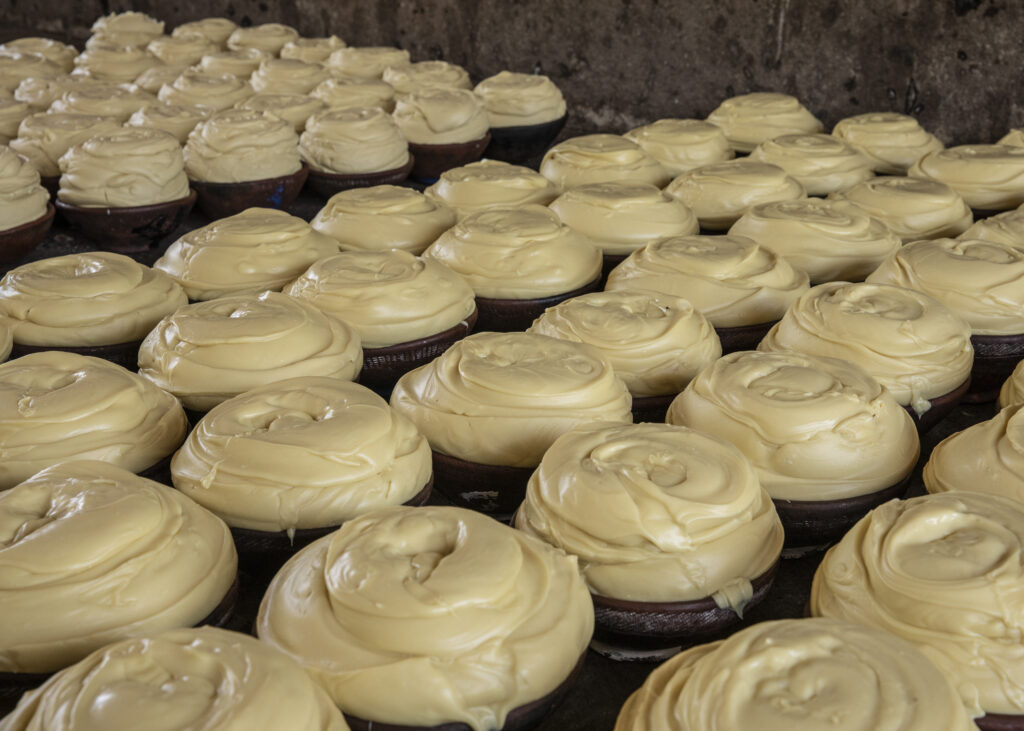
Shea butter crops up in everything from haircare to anti-ageing creams – and for good reason.
It is an effective emollient that traps moisture, helping to soften and hydrate dry skin.
Shea butter also contains several types of fatty acids that improve the skin’s natural barrier, so it’s good for protecting skin from damage from pollutants, harsh climates and even harmful UV rays (it only has a small dose of UV protection, so it’s important to still wear sunscreen).
Its rich levels of fatty acids can also help to soften scar tissue, speeding up the healing process.
Not only that, it also contains components that can have an antioxidant effect, which is good for cell repair. That’s why you’ll find it in anti-ageing and anti-wrinkle creams.
Shea butter brilliantly has natural anti-inflammatory properties that can help soothe irritated skin. This makes it great for things like sunburn, preventing irritation after shaving and nappy rash. A small 2015 study found that shea butter may even help alleviate skin conditions like eczema.
It’s even thought to have mild healing qualities. That’s why it’s used in products to treat insect bite treatments and stings as well as for healing stretch marks and scars.
Why Fairtrade Shea Butter is good for women:
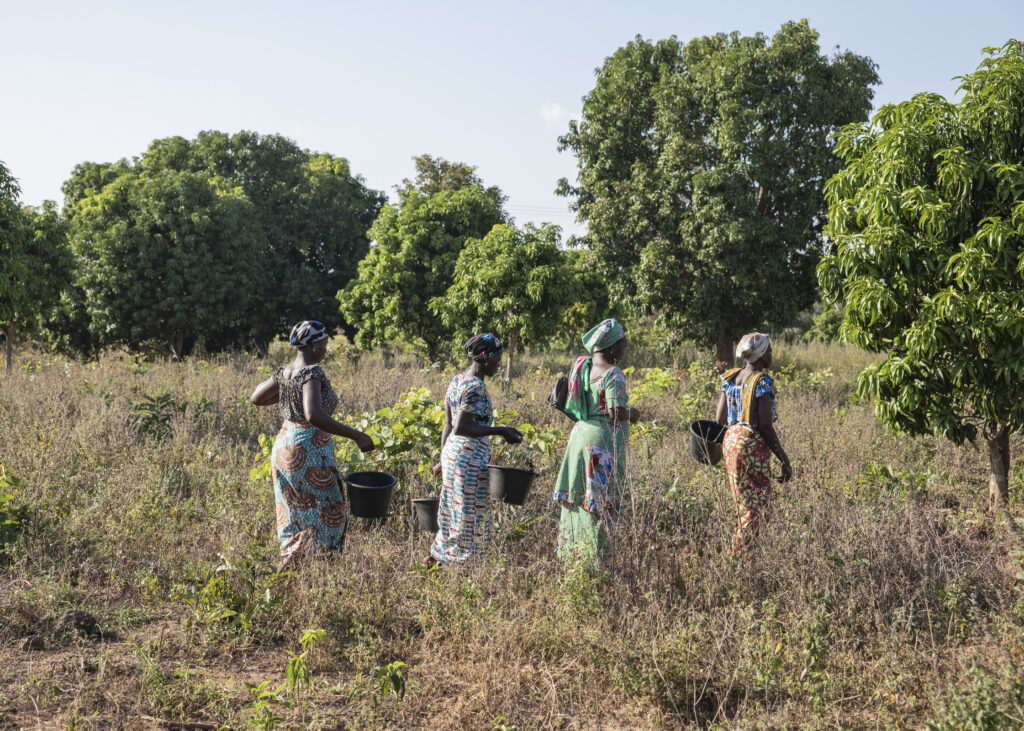
Shea butter is known as “Women’s Gold” because the harvest and production are closely associated with women’s village societies, across West Africa.
Its production provides around 10 million women who pick, harvest and process the shea nut with crucial economic opportunities and financial support.
During the “lean months” (May to August) between cocoa seasons when money is really short, women are able to earn money for their households through the shea industry.
According to a study in Northern Ghana, 90 percent of women view shea as the major source of their livelihood.
However, the production of shea butter is not without its risks. Women are vulnerable when picking the nuts in the forest alone. They can also be exposed to toxic smoke fumes during processing.
“Something that should be an amazing opportunity for women can turn into something that puts them at risk,” explains Fairtrade’s Barker.
“Through Fairtrade, these women have access to training, support and safety equipment. They also earn the additional premium that allows them to reinvest in their businesses. That’s exactly why ensuring the shea supply chain is Fairtrade is so important.”
FAIRTRADE COCONUT OIL
Where it’s from: small plots of land in Sri Lanka, the Philippines, Samoa, India and Ghana.
How it’s processed: Coconut oil is a plant-based fat that has been extracted from the ‘meat’ of a mature coconut. Unrefined coconut oil can be processed either through quick drying (meat is heated rapidly and then removed) or cold processing (the milk is taken out of the fruit and then boiled or fermented to take the oil out of the milk). Refined coconut oil undergoes further processing, such as neutralising and deodorising.
Why Coconut Oil is good for your body:
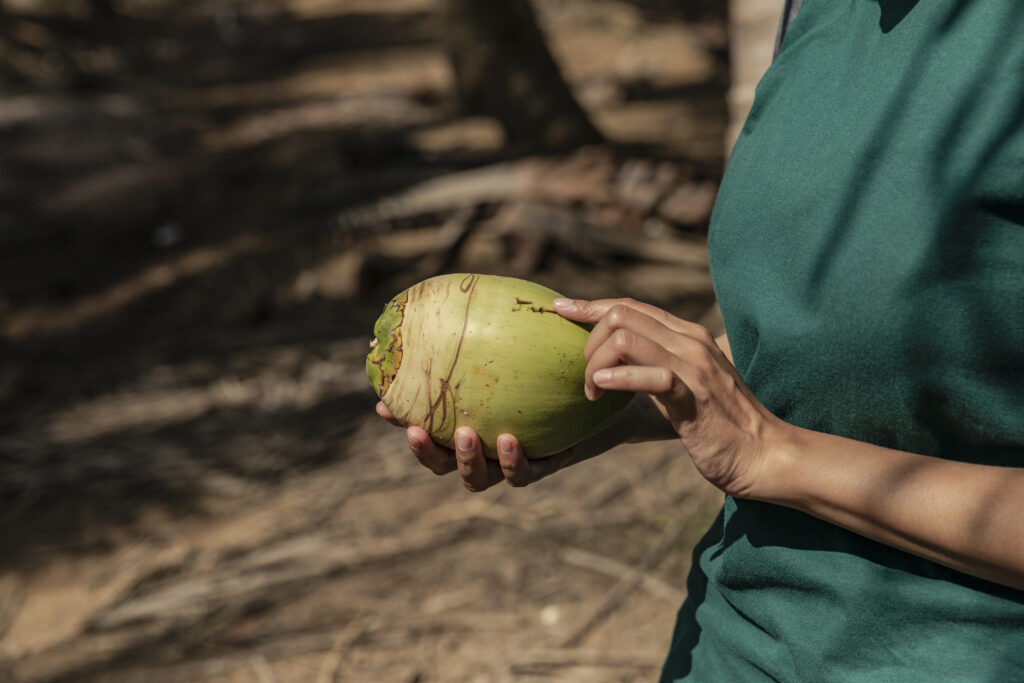
Coconut oil has risen in popularity not just in our kitchens, but in our bathrooms, too. That’s because of the numerous health benefits associated with slathering it on our skin and hair.
Coconut oil is made up of fatty acids. These help to reduce dryness and retain moisture. So, it’s great for moisturising dry skin and hair.
It’s incredibly soothing and can prevent skin irritations. Some evidence suggests it can also help with skin conditions such as eczema or psoriasis.
Coconut oil is thought to enhance the protective barrier of the skin, helping shield skin from exposure to environmental toxins. It’s also good for reducing inflammation due to UVB rays, making it potentially helpful for aftersun damage control.
It has antibacterial, antifungal, and antiviral properties, widely linked with promoting wound healing.
Plus, it contains antioxidants which help prevent signs of ageing.
Why Fairtrade Coconut Oil is good for women:
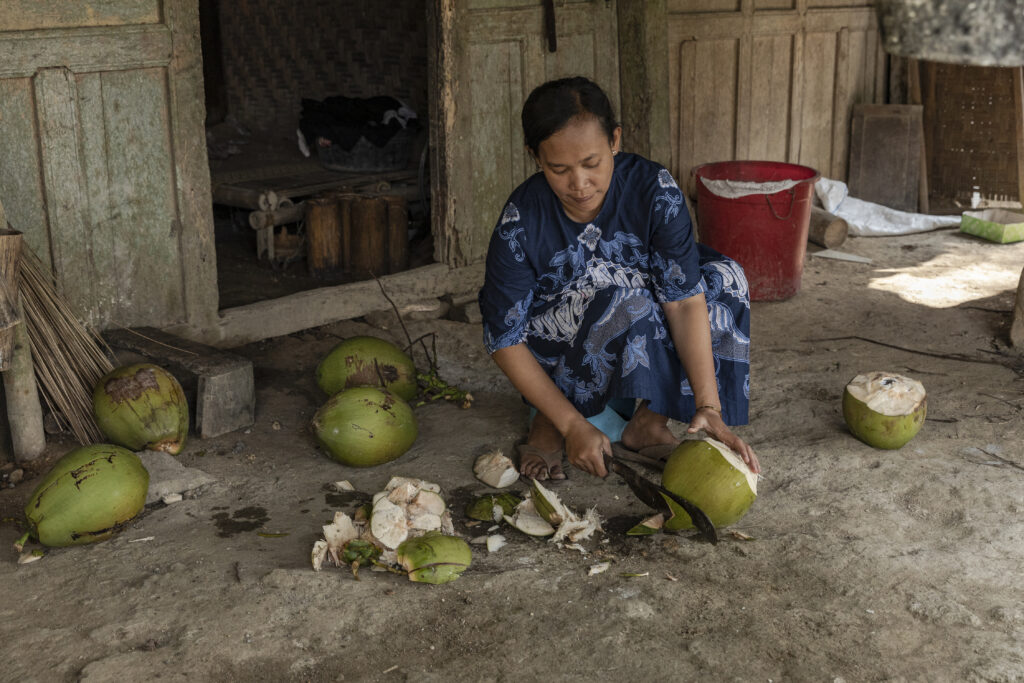
Coconut oil might smell great and work a treat, but it’s important to know where this ingredient is sourced.
There are many stages involved from taking a raw coconut from a tree to creating the ingredient in our skincare. Within the supply chain there is often a lack of visibility of the workers – how they’re treated and what they’re paid – which can prove especially harmful for female workers.
Barker explains:
“Non-Fairtrade coconut often comes from hired-labour setups, so what you tend to see on coconut farms is male-dominated management teams and women in lower-paying jobs. Because of this gender power imbalance, female workers often face sexual exploitation and gender-based violence.
“For instance, sometimes the male management will make requests of women that are completely inappropriate, but because the woman is totally reliant on her salary, she feels obligated to do as the male supervisor says. If there aren’t any women in management, there’s often no recourse for these women to get help or feel supported.”
That’s why the work that Fairtrade does on farms to support female workers and equal gender representation is so vital.
This includes elevating women to managerial positions and providing safe spaces for women to go to for emotional support. The Fairtrade Premium can also be used to provide financial aid (without unacceptable conditions attached) as well as economic and entrepreneurial training.
Currently not enough coconut oil is sold as Fairtrade, so this really is one to look out for.
FAIRTRADE OLIVE OIL
Olive oil, where it’s from: Palestine, from an amazing organisation ground called CANAAN. (Renowned kitchen Olive Oil brand Zaytoun have championed this group).
Olive oil, how it’s processed: Olive oil is derived from the fruits of the olive tree. Olives can be pressed to extract their oil, but modern methods involve crushing the olives to turn them into a paste, mixing them, and then separating the oil from the pulp.
Why Olive Oil is good for your body:
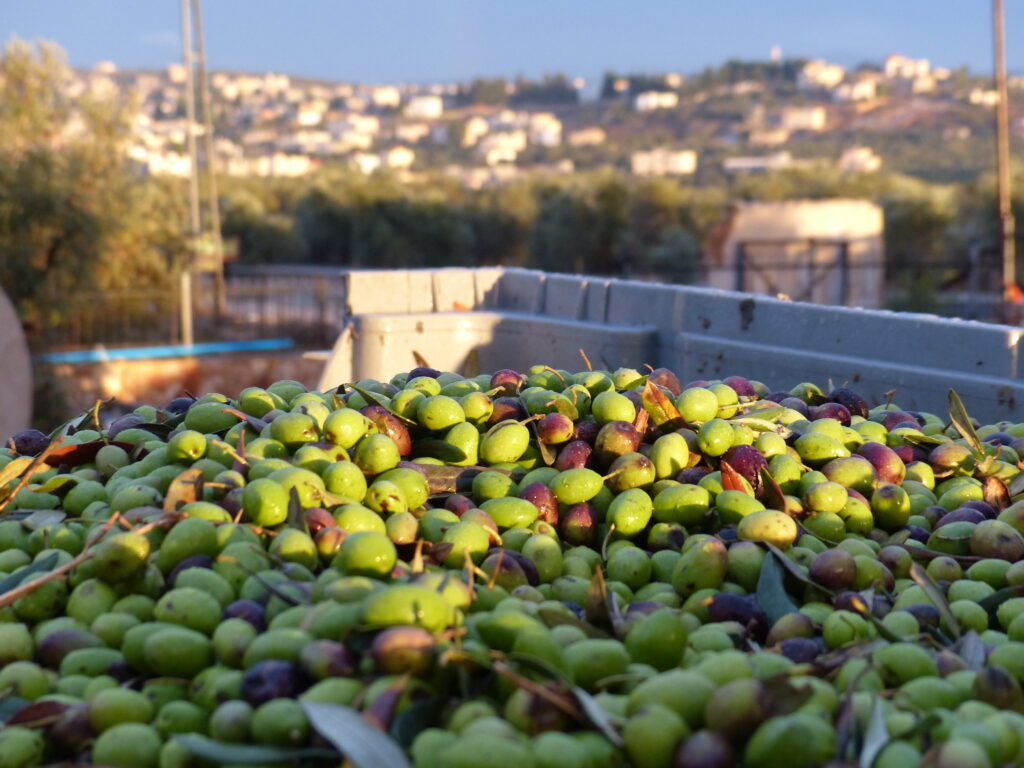
Did you know olive oil is a great ingredient for more than just your salad? While it has great nutritional benefits when eaten, it can do a world of good when applied to our skin and hair, too.
So why is it so good? Well, for starters, olive oil is rich in vitamins and has natural moisturising properties that make it good for softening skin and adding shine to hair.
Olive oil is an antioxidant, which is linked to the prevention of premature ageing.
Olive oil has even been shown to have antibacterial properties and can be helpful when treating skin bacterial infections.
Why Fairtrade Olive Oil is good for women:
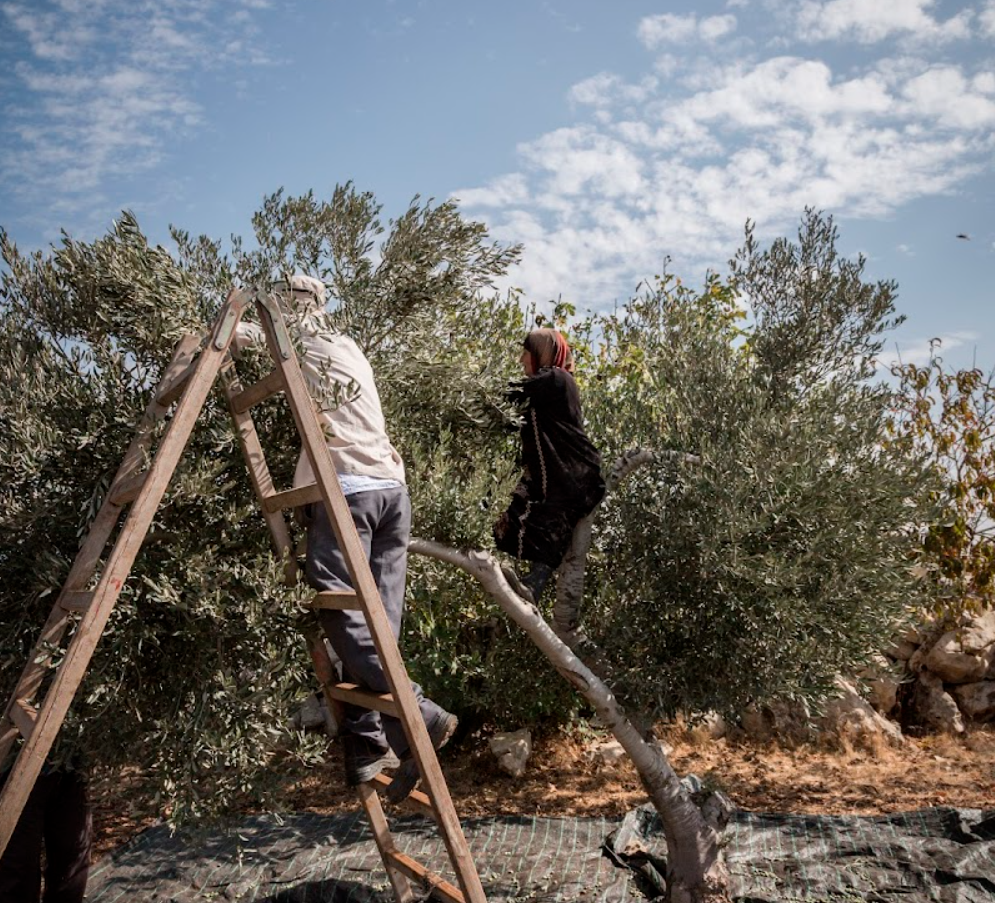
Fairtrade olive oil predominantly comes from an incredible organisation in Palestine called CANAAN. Amidst national instability, they have created market access for small-scale producers and stable job opportunities.
CANAAN has a huge impact on the lives of local women, helping to financially and economically empower them.
One example is Bassema Barahmeh – farmer, supplier of Fairtrade olive oil, board member of the Palestine Fair Trade Association, coordinator of Anza’s women cooperative, village council member and mother of four.
Bassema has 10,000m2 of olive trees, producing around 300 litres of oil in a good year, some of which she sells to CANAAN. The rest she keeps for her family. Like other Anza farmers, she has massively benefited from the use of Fairtrade premiums to buy tools and materials for harvesting.
Bassema is now able to pay her empowerment forward to other women and girls. She says:
“I’m passing on these traditions to the next generation of women in order to preserve Palestinian culture and connect them with their heritage, and to offer them the chance to be future leaders.”
In Deir Ballout, home to CANAAN Palestine’s 11-member olive cooperative that produces over 16 tons of olive oil annually, women are the primary actors in the agricultural field, maintaining and managing the olive harvest activities.
CANAAN Palestine’s website explains:
“With a remarkable number of women with registered land ownership, almost everyone in Deir Ballout, including the men, affirms that women are running the agricultural sector while raising their children and taking care of their families.”
BRANDS TO LOOK OUT FOR:
“Working at Fairtrade in Africa, I see how buying a product from Fairtrade can really help contribute to the empowerment of women in West Africa. It ensures you are helping to alleviate the suffering and the challenges that women face working in sectors like shea and coconut,” insists Dr Jonathan Lanidune.
“Buying Fairtrade means traceability. It means a premium is being paid that will help to benefit women and wider communities. Plus, it means issues like deforestation are being addressed. These are critical reasons for why ethical consumers in the UK should look for the Fairtrade mark.”
Here are some brands to look out for:
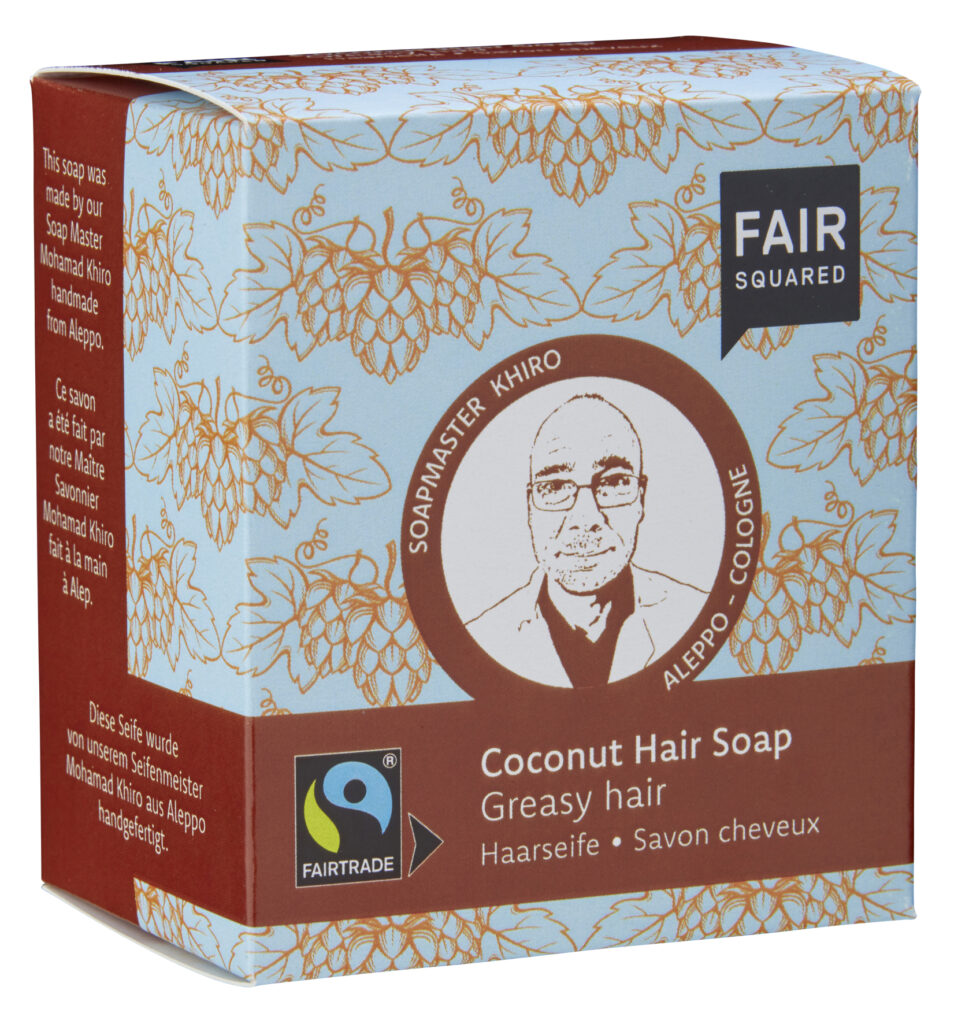
FAIR SQUARED: FAIR SQUARED’s wide range of natural and ethical cosmetics, from hair soaps to body lotions, is made completely vegan, cruelty-free, plastic-free and certified Fairtrade. Plus, their shea-deodorant cream really works. FAIR SQUARED are NATRUE certified and registered with The Vegan Society.
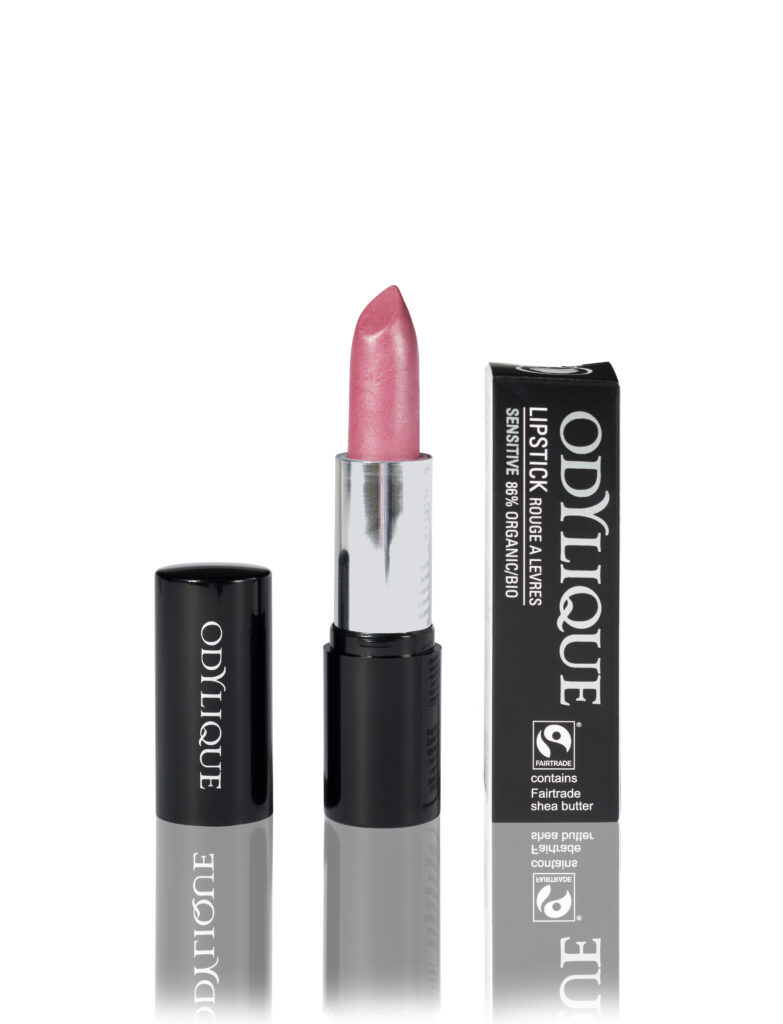
Odylique: Odylique’s produce cruelty-free, 100% natural, 86% organic lipsticks are bursting with botanical ingredients including raw shea butter that soothes and moisturises the most sensitive lips. They are the first lipsticks certified to Soil Association and Fairtrade standards! Available in a range of colours to suit every skin tone.
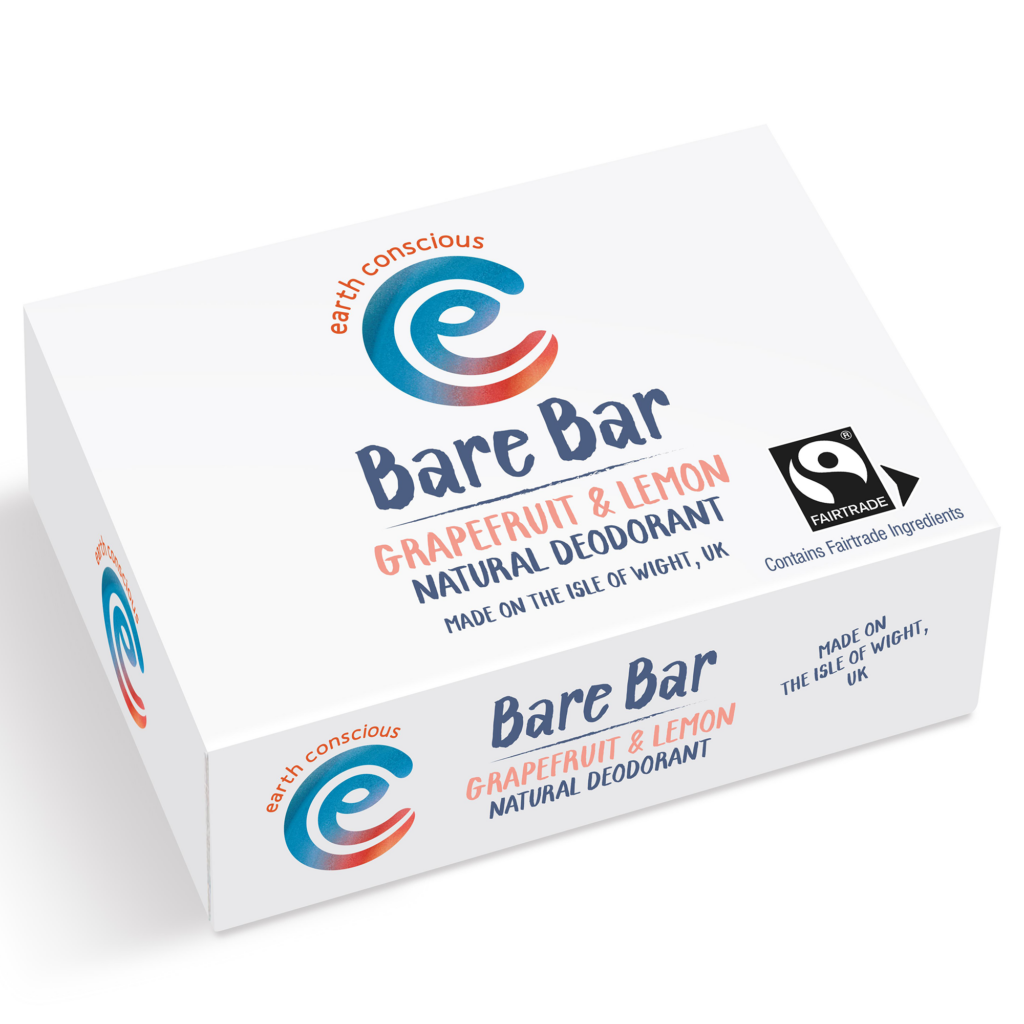
Earth Conscious: Earth Conscious’ make ALL GOOD natural deodorants and baby balms in the UK. They use only natural and organic ingredients, including Fairtrade Certified Coconut Oil and Shea Butter. They are Vegan Approved by the Vegetarian Society and endorsed Cruelty-Free by the Leaping Bunny programme. 10p from every product sold is donated to the Marine Conservation Society, a UK charity protecting our seas, shores and wildlife.
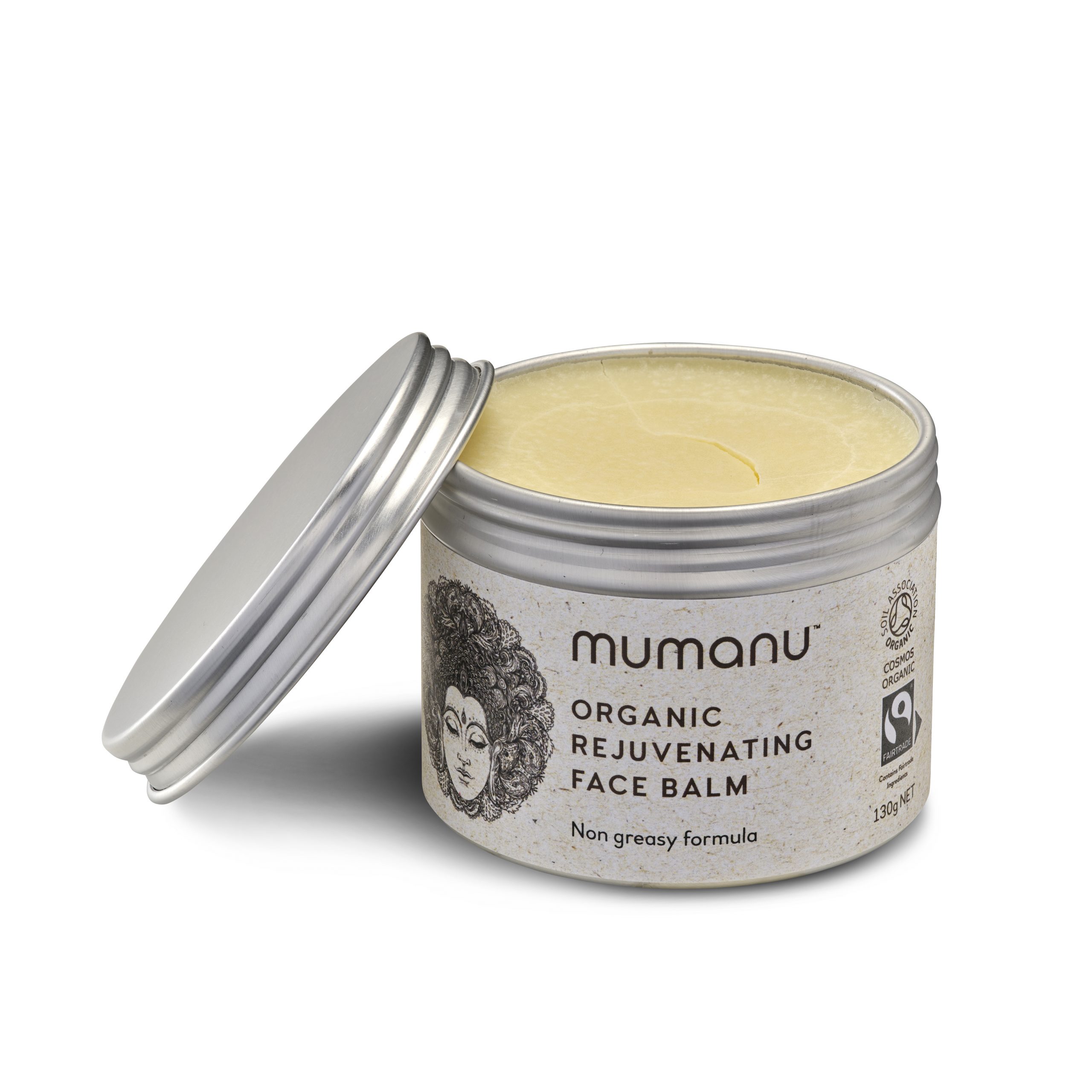
Mumanu: Mumanu sell a range of soothing and nourishing certified organic and Fairtrade balms to lather yourself in head-to-toe. Their balms are certified organic by the Soil Association and contain 40% Fairtrade ingredients, including Shea Butter and Coconut Oil.
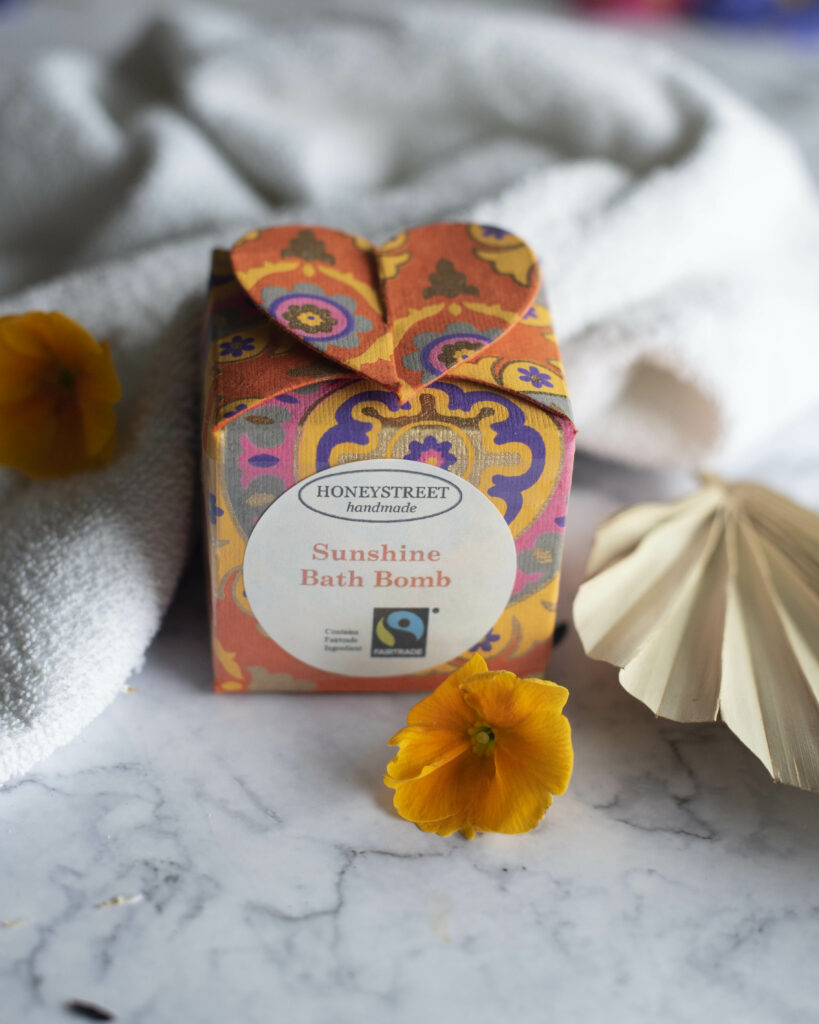
Honeystreet Handmade: Honeystreet Handmade sells a range of luxury Fairtrade bath and body products. Their products are locally made by a family company in the Wiltshire countryside. They have over fifty products certified by Fairtrade and source brilliant Fairtrade ingredients from across the world.
Main image: Silue Minata from shea butter producing cooperative WOBIN in Côte d’Ivoire.


